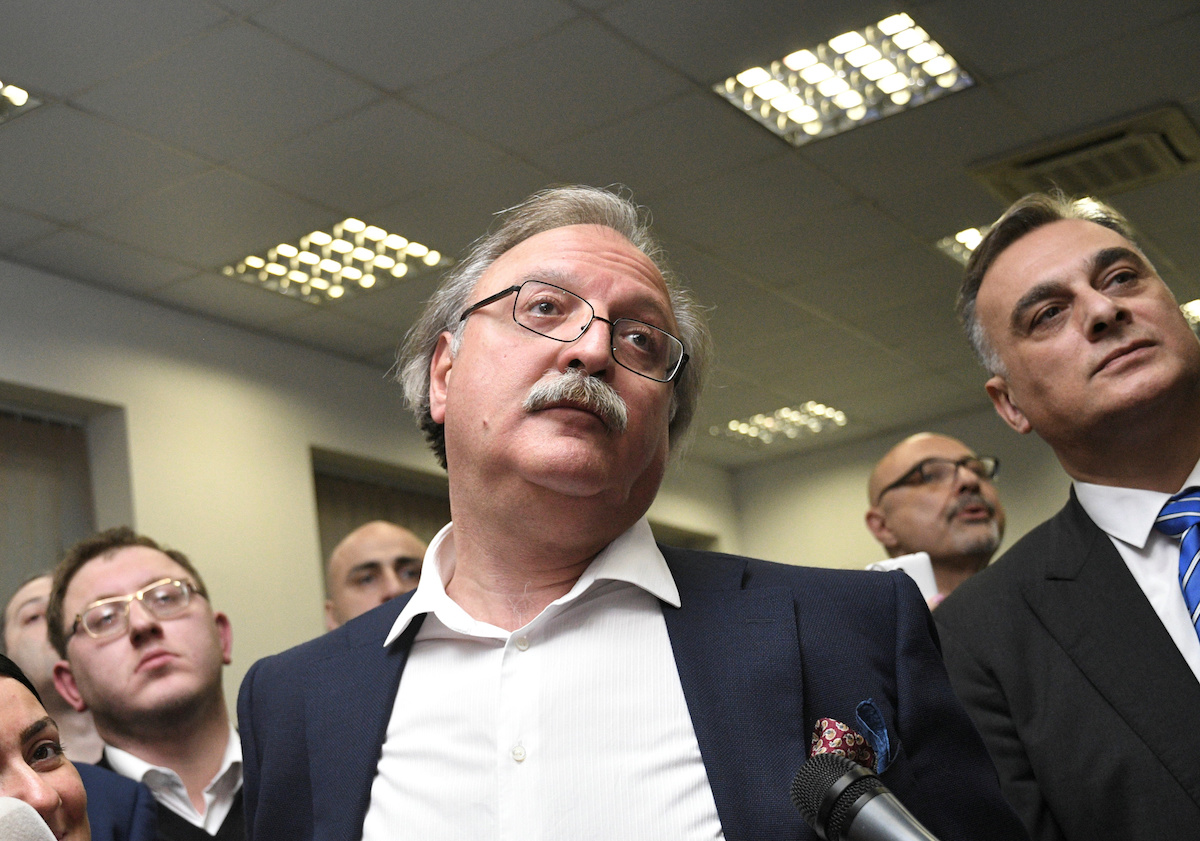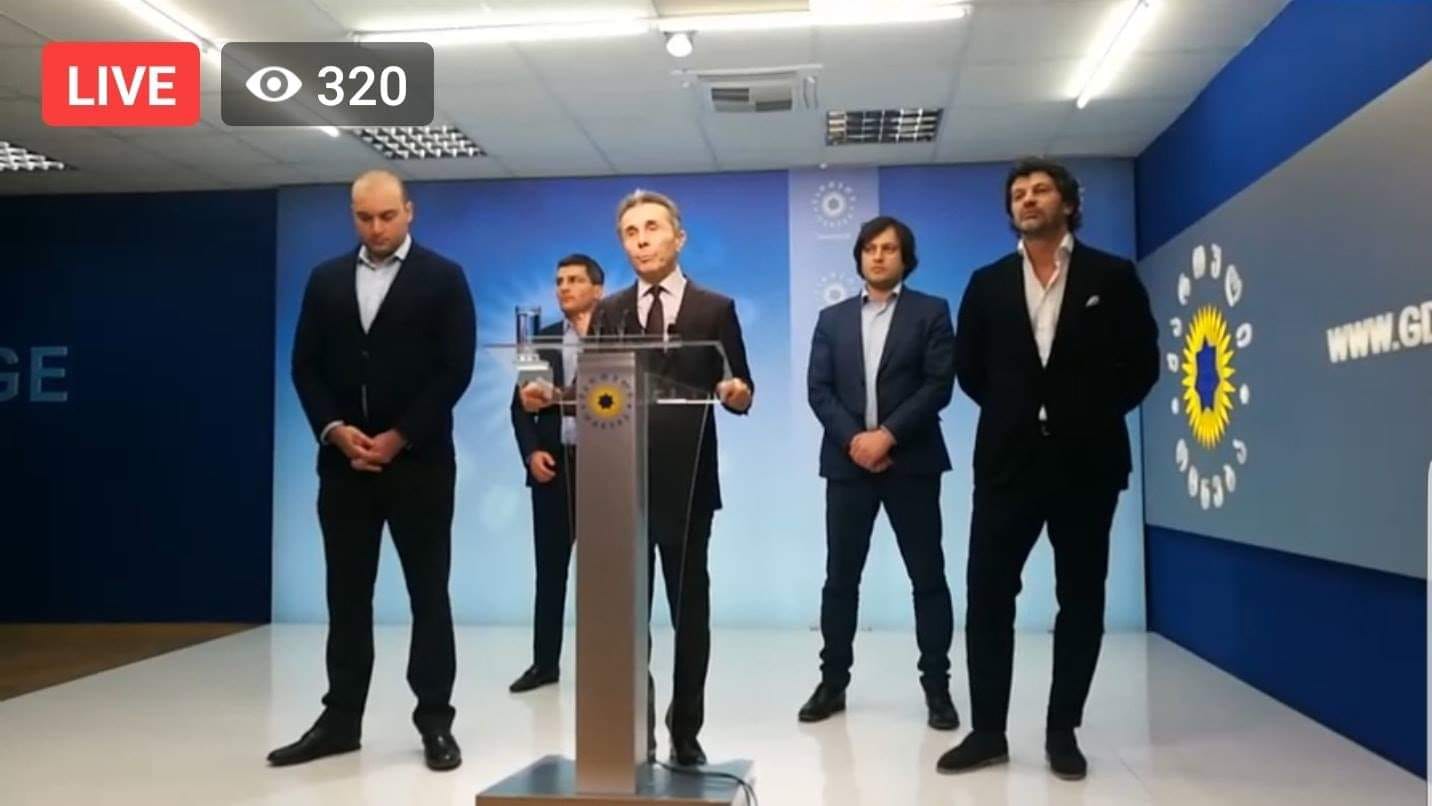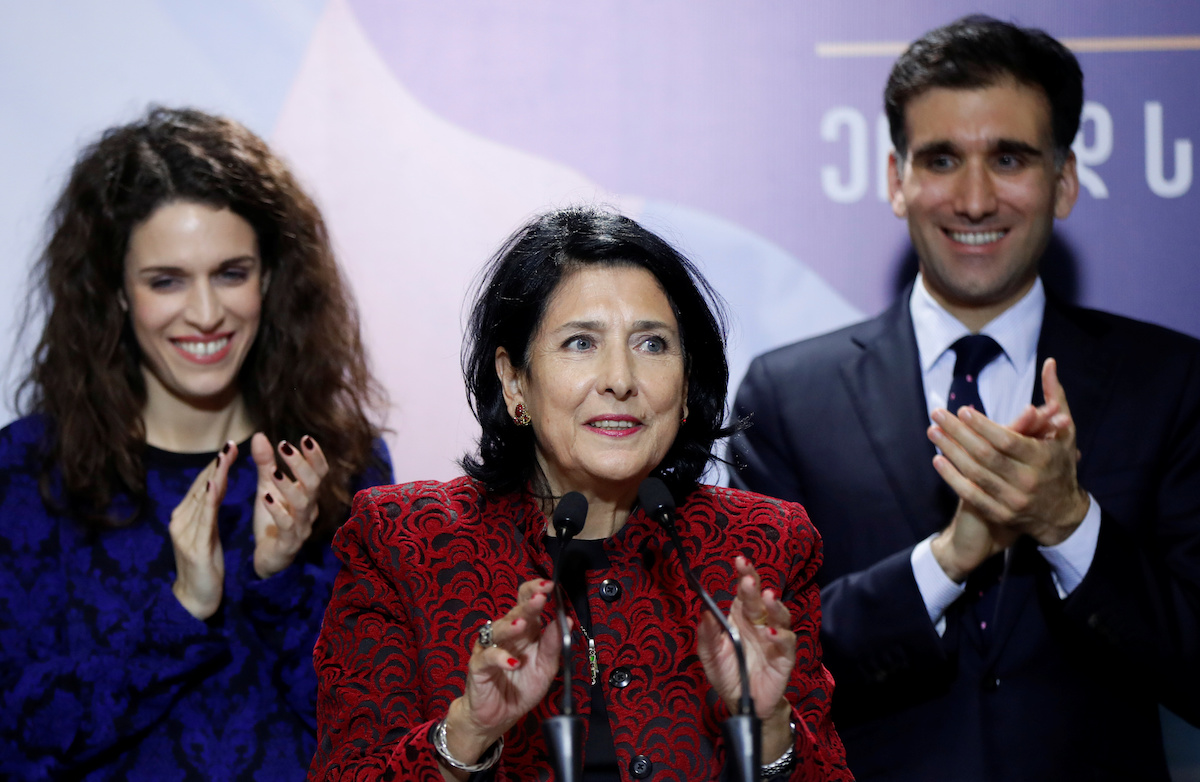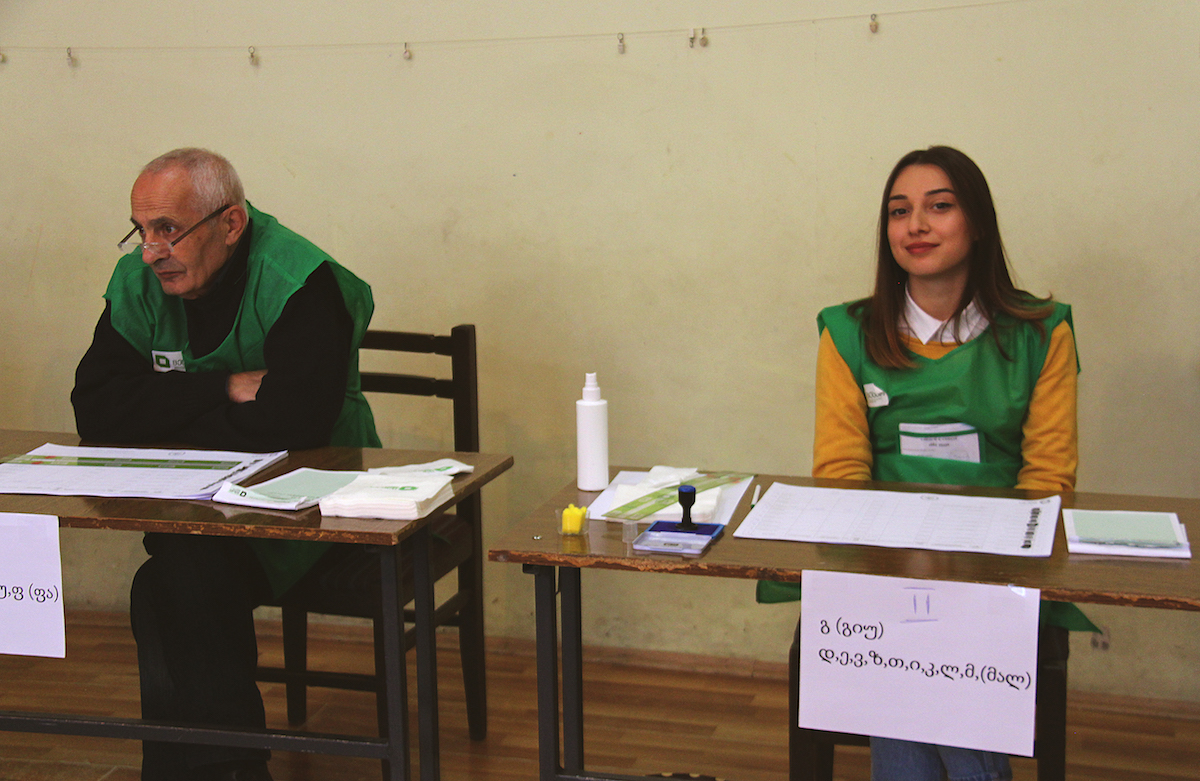Salome Zourabichvili elected Georgia’s fifth president
After a series of scandals and a second round of voting, Georgia has elected its fifth president.
The Central Election Commission (CEC) has not yet announced the final results, but most of the ballots have been counted – pro-governmental candidate Salome Zourabichvili will become the country’s next president.
The united opposition candidate Grigol Vashadze did not trail far behind – according to preliminary data from the CEC, Zourabichvili received 59.52 per cent of the vote, while Vashadze received 40.48.
Public turnout higher in second round than in first.
According to the CEC, 56.23 per cent of the population of Georgia took part in the elections, totaling 1,975,845 people. This is 10 per cent higher than in the first round, when 46.74 per cent of the population, or 1,637,956 people, voted.
In Tbilisi, voter turnout was 55.9 per cent.
_____________
Exit polls, which published their results immediately after the polling stations closed on 28 November, were close to these figures.
Edison Research, commissioned by TV company Rustavi-2, reported that 55 per cent of voters had voted for Zourabichvili, while 45 per cent had voted for Vashadze.
Gallup International, hired by pro-government television company Imedi, predicted that Zourabichvili would receive 58 per cent of the vote while Vashadze would receive 42 per cent.
• Presidential elections in Georgia: Why is the ruling party talking about civil war?
• Debts of 600,000 Georgian citizens to be cleared just before second round of presidential elections
• Georgia goes back to the polls: all you need to know about today’s elections
First reactions
Immediately after the publication of the exit poll results, the election headquarters of both candidates made comments.

Grigol Vashadze at his party headquarters after the exit poll announcements. 28 November 2018. REUTERS / Irakli Gedenidze
Grigol Vashadze thanked his supporters at a special briefing for coming out to vote, and said that he trusted the results of the Rustavi-2 exit poll, while simultaneously accuseingthe authorities of putting pressure on the population.
“Georgia has not yet known such elections. The authorities mobilized anyone they could and bought anyone they could. All criminal elements, corrupt officials – all were involved. But despite this, the United Opposition managed to gain 756 thousand votes,” Vashadze said.
He also stated that a final assessment will be given once the election results have officially been announced.
Much more radical was the reaction of Mikheil Saakashvili.
The former president declared that in view of the numerous violations, he did not recognize the election results and called on the population to take to the streets and demand early parliamentary elections.
“Starting tomorrow [from 29 November – JAMnews], regardless of what the election results will indicate, we will turn to mass actions of disobedience. I urge the police of Georgia and the army to disassociate itself from the criminal, mafia gang at the head of the state,” Saakashvili said.
This statement and appeals, however, were received without enthusiasm, both in his party and in the ranks of the opposition as a whole.
“The United Opposition has a council that decides what to do next,” said Giorgi Vashadze, the head of the united opposition electoral headquarters, in response to Saakashvili’s statements.
In the political camp of the winning party, the first statement was made not by Salome Zourabichvili, but by the leader of the ruling party and informal government of Georgia, billionaire Bidzina Ivanishvili.
After the results of the exit polls were announced, it was Ivanishvili who thanked the public for their support.
He regarded Zourabichvili’s victory as his own, and assumed further responsibility:
“I want to express my deepest gratitude to society for such a response, the rest is on me. I will fulfill all these promises, I will try to the maximum,” Ivanishvili said.

Zourabichvili made her statement later on.
She said that voters proved that they do not want to return the past, and promised to also be a good president for the people who did not vote for her.

Main violations
Non-governmental organizations (NGOs) and journalists drew attention to a number of irregularities on election day.
Observers noted cases of individuals voting more than once;

Cases of voters being pressured were also noted around polling stations by the so-called ‘coordinators’, the local authorities, whose presence had an undesirable effect on voters.
There were numerous cases of procedural violations for physically marking voters.
• NGO: Legitimacy of Georgian presidential elections may be under question
• Less than a month until the elections – Ivanishvili appeals to the public for one last chance
• Georgian NGOs: voters being bribed in run-up to second round of presidential elections
Many people received calls from the party number 48 (Salome Zourabichvili’s election number), and an automated recording with the voice of Bidzina Ivanishvili urging people to go to the polling station and vote for a brighter future.
Observers noted more serious violations during the campaign period. Eka Gigauri, head of the International Transparency NGO Georgia, says that the most unprecedented violation was the promise to write off the bank debts of 600,000 voters, which many NGOs say was a blatant attempt at bribing voters.
Gigauri says that during the campaign period, the authorities also played on the needs of the population and promised to increase the amount of aid and new programmes, something which is also prohibited by law and is regarded as voter bribery.
Who is Salome Zourabichvili?
Salome Zourabichvili is officially an independent candidate. However, she has received extensive support from the ruling Georgian Dream party, including administrative and financial aid.
Born in Paris, Zourabichvili is the granddaughter of political immigrants who fled from Georgia in 1921.
She served in the French diplomatic corps, and in 2003 was appointed the French ambassador to Georgia. In 2004, after the Rose Revolution took place in Georgia, ex-president Mikheil Saakashvili gave her Georgian citizenship and appointed her minister of foreign affairs in his government.
• Salome Zourabichvili: the ruling party’s first serious failure
Zourabichvili did not serve long under Saakashvili. In October 2005, she joined the opposition, but failed to head up a serious party. She left both politics and Georgia and came back only in 2012 after billionaire Bidzina Ivanishvili entered politics. Throughout these years she openly supported Ivanishvili, though she did not become a member of the ruling Georgian Dream party.
Zourabichvili is a member of the Georgian parliament. While she officially entered parliament independently, she received strong support from Georgian Dream in becoming an MP.
Not every member of Georgian Dream was excited about supporting Zourabichvili, but given that she was Ivanishvili’s personal choice, few in the party had the courage to argue with him outright.
Zourabichvili was the target of a social media campaign mainly due to her remarks about the August 2008 War. She said that Georgia started military activities and ultimately the war by reacting to Russian provocations.
Authority of the future president
The president will serve a term of six years according to recent amendments to the constitution. Earlier, presidents served a term of five years.
These were the last direct presidential elections. In 2024, the president will be elected by an electoral college. The college will consist of 300 people: 150 members of the Georgian parliament, 13 people from the Supreme Councils of Adjara and Abkhazia, and another 124 by self-government bodies.
According to the new constitution, the president’s rights have been significantly reduced, although some significant functions still remained with the position.
The powers of the future president
The president may:
√ pardon convicts;
√ award Georgian citizenship;
√ represent Georgia in the international arena, but all steps must be coordinated with the government;
√ formally sign the appointments of the prime minister and members of the High Council of Justice;
√ appoint local elections, parliamentary elections and also early elections;
√ award and present awards;
√ not be arrested or prosecuted; the matter of impeachment can be raised on the consensus of one third of the members of parliament.
Georgia is a parliamentary republic. Accordingly, it is the parliamentary elections that will determine who will lead the country in two years.
These presidential elections were a dress rehearsal for the parliamentary elections. They will allow political parties to assess their capabilities, and society to understand the capabilities of these political actors before the parliamentary elections in 2020.



















